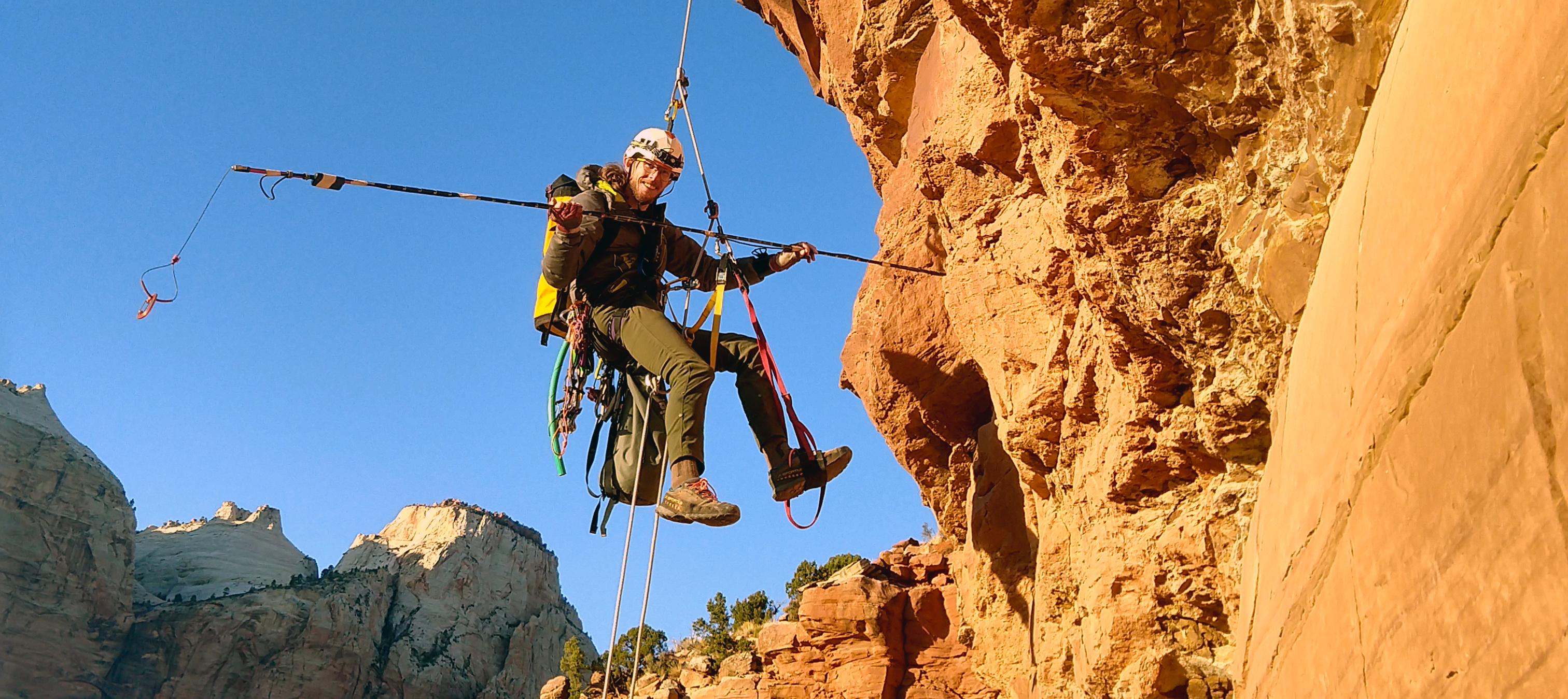A Different Kind of Bat Signal
-Tracking Through Telemetry-
Some of Zion’s most exciting wildlife only emerge at night. With your help, we can track them wherever they might land.
Past research, funded through the Zion Forever Project, helped the park establish a climbing program, which saw recreational climbers participating in meaningful research and data collection in close coordination with park scientists. Citizen climbers, working with park biologists, were able to identify and describe the first documented cases of hibernating bats in the park including ones on Zion’s tall cliff faces. Very little is known about cliff hibernacula, (places where bats spend winter). Every observation helps researchers learn more about their behavior and monitor for the arrival of white-nose syndrome, a fungal-caused disease that has deadly effects during hibernation.
This research has yielded important information for many different species of bats in the park. Several species impacted by white-nose syndrome in other states remain elusive to the survey team. To locate these hard-to-find species in winter, the teams will need to first capture the bats and then track them back to their winter locations. Capturing bats is no easy task, but the minor annoyance to the animal yields essential information. Large nets are draped, often over pools and streams, and as the bats emerge and dart for insects, they become entangled in the artificial netting. In just a few minutes, a trained park biologist can calm the bat, ascertain its species, identify its sex, determine if it is adult or juvenile, and take key body measurements.
With your support of this project, scientists using antennas and radio telemetry will track the bats to where they hibernate on the cliff faces and talus slopes. They will then team up with climbers to study the located animals. In the bat world, this is groundbreaking research.
“We are one of very few teams able to do this research. With thousands of miles of cliff-face and acres of lava fields, tracking them individually requires advanced technology and support. This research will provide valuable information to managers across the west trying to help these hard-to-find species. All told, we have more research into the oceans than into the cliff faces these bats call home.” –Zachary Warren, Bat Biologist, Zion National Park
Your donation to this project helps biologists gain valuable insight into the bat’s winter ecology throughout the region.

